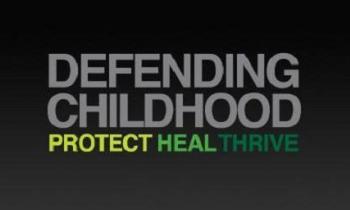Defending Childhood Initiative in Indian Country

As part of the Defending Childhood Initiative, FUTURES is proud to partner with two tribal sites doing culturally specific work across the Rocky Boy Indian Reservation and Rosebud Sioux Indian Reservation.
Read more about the innovative work being done in both communities and contact them directly for more information.
Rocky Boy Indian Reservation

Led by the Chippewa Cree Tribe’s Department of Human Services, Rocky Boy’s Children Exposed to Violence Project (RBCEVP) is a collaborative effort of 11 organizations designed to prevent children’s exposure to violence (CEV), reduce its negative impact, and increase awareness. The Chippewa Cree Tribe is targeting all of the Rocky Boy Reservation, spanning 195 square miles in northern Montana. Rocky Boy, isolated by geography, weather and economics, is Montana’s smallest reservation with a total population of 3,600 residents that includes roughly 900 children and youth under the age of eighteen.
By design, the strategic plan for the RBCEVP is a Chippewa Cree culture-based approach to prevention and treatment that emphasizes the Chippewa Cree way of life in terms of philosophy, traditional value system, custom, protocol, health & healing concepts, socialization, and education. The approach also integrates a native epistemology (way of knowing) through the involvement of tribal elders.
The RBCEVP aims to address and prevent children’s exposure to violence by engaging both tribal programs and community members through robust strategies that incorporate culture as a protective factor in all programming. Technical assistance providers, Futures Without Violence and Native Streams have supported the development of this work.
For more information, visit our Facebook page.
Or Contact Us:
Trina Wolf Chief
Chippewa Cree Tribe
Human Services Division
Children Exposed to Violence Project
31 Agency Square
Box Elder, Montana 59521
PH: (406) 395-4542
FX: (406) 395-5881
Rosebud Sioux Tribe

The Rosebud Sioux Tribe’s Defending Childhood Initiative (RSTDCI), Wakanyeja Ta Wiconi Ki Awayang Kuwapi, began in 2010 and is a collaborative effort of roughly 36 organizations designed to prevent children’s exposure to violence (CEV), reduce its negative impact, and increase public awareness. The Initiative reaches all of the Rosebud Sioux Reservation, which is made up of 20 different communities spanning 1,442 square miles in South Central South Dakota.
The Rosebud Sioux Tribe’s enrollment statistics from 2009 show 28,375 enrolled members. The estimated total number of children on the reservation varies. The Rosebud Enrollment Office indicates there are 7,901 enrolled tribal members under the age of 18—838 of whom live on the reservation. The 2010 Census indicates that Todd County—which lies entirely within the reservation—is home to 8,468 total Native Americans and 3,857 individuals below the age of 18.
Leaders of the RSTDCI have concluded that a mixed approach to the issues facing children exposed to violence – rooted in Lakota values and administered by culturally competent and trauma-informed service providers, including education, law information and health care – will prevent exposure to violence and reduce and respond to the harm experienced by children.
The RSTDCI aims to address and prevent children’s exposure to violence by engaging both tribal programs and community members through robust strategies. Technical assistance providers, Futures Without Violence and Native Streams have supported the development of this work.

Pictured is staff from the Rosebud Sioux Tribe’s Defending Childhood Initiative, Wakanyeja Ta Wiconi Ki Awayang Kuwapi. (Left to right) Tori Whipple, Sunrise Black Bull, Marcella Medicine Blanket, Micah Lunderman and Vikki Eagle Bear
For more information, visit our Facebook page.
Or Contact Us:
Vikki Eagle Bear, MA
Project Manager
Defending Childhood Initiative
Rosebud Sioux Tribe
Rosebud, South Dakota 57570
PH: (605) 856-2016



